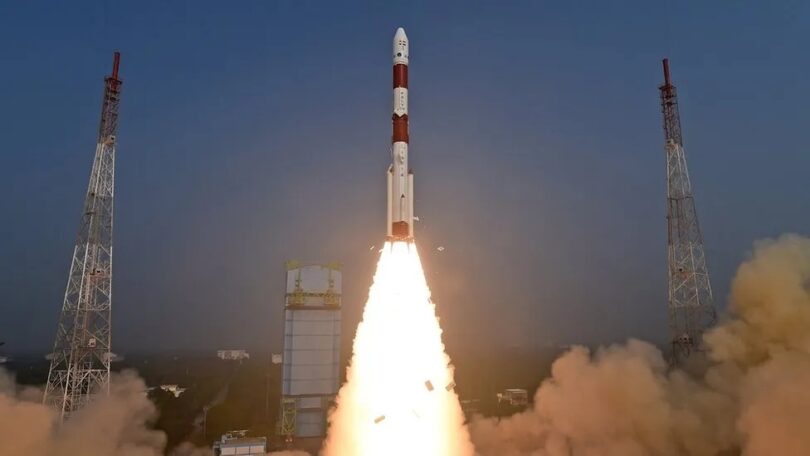NEW DELHI: India’s space agency has successfully launched a rocket that is carrying an observatory which will study astronomical objects like black holes.
It was launched from Sriharikota spaceport at 09:10 local time (03:40GMT) on Monday.
This is only the second mission in the world of this nature after Nasa launched one in 2021.
The space agency said it wanted to help scientists improve their “knowledge of black holes”.
“We will have an exciting time ahead,” Indian Space Research Organisation (Isro) chairperson S Somanath said after the launch.
A black hole is a region of space where matter has collapsed in on itself. The gravitational pull is so strong that nothing, not even light, can escape.
Black holes emerge from the explosive demise of certain large stars, and some are truly huge – their size billions of times the mass of our Sun.
Isro’s satellite – X-ray Polarimeter Satellite (XPoSat) – will aim to conduct in-depth research on black holes.
Built at an approximate cost of 250m rupees ($30m; £23.5m), the XPoSat satellite is estimated to have a lifespan of five years.
The launch comes after a hugely successful year for Isro. In August, its Moon mission Chandrayaan-3 touched down near the lunar South Pole region, an area that no-one had reached before. Days later, it launched Aditya-L1 – its first observation mission to the Sun.
Monday’s launch is just one among several projects Isro has planned to carry out this year.
“2024 is going to be the year for Gaganyaan readiness,” Mr Somnath said, referring to the project which aims to send three astronauts into low-Earth orbit and bring them back after three days.
Isro carried out the first in a series of tests flights for the mission in October 2023 and aims to be ready for the manned mission by 2025.
Courtesy: BBC







